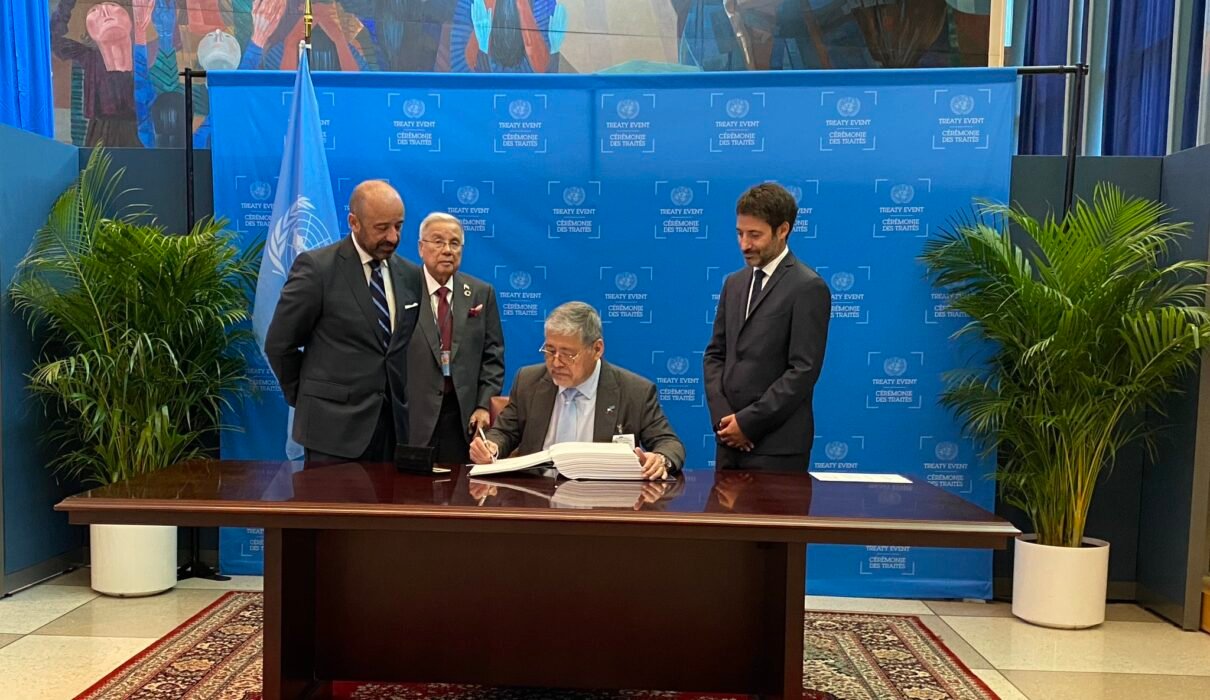SEVENTY-FIVE countries, including the Philippines, signed in New York City the High Seas Treaty, the first-ever treaty to protect the oceans.
Foreign Affairs Secretary Enrique Manalo signed the High Seas Treaty, also called Biodiversity Beyond National Jurisdiction (BBNJ Agreement), on behalf of the Philippine government on September 20.
Other countries including the United States, China, the United Kingdom, the European Union, as well as Asean countries Indonesia, Singapore and Vietnam, also signed on the first two days since the treaty was opened for signing in the margins of the United Nations High Level Week.
The agreement provides for the common governance of about half of the Earth’s surface and 95 percent of the ocean’s volume, the largest habitat on the blue planet.
It took almost two decades for the United Nations to agree to the text of the High Seas Treaty. On June 19, the UN adopted by consensus the text of the treaty, under the UN Convention on the Law of the Sea (Unclos).
The high seas are defined as areas in the ocean beyond the exclusive economic zones of coastlines of coastal states.
Marine resources and biodiversity in the high seas provide ecological, economic, social, cultural, scientific and food security benefits to mankind. However, only about 1 percent is protected, while the rest face mounting threats such as pollution, overexploitation, climate change and biodiversity loss.
“Honored to sign today (September 20) the historic Agreement under #1982 UNCLOS on the Conservation and Sustainable Use of Marine Biological Diversity of Areras beyond National Jurisdiction Agreement. Proud to take this step to protect the world’s oceans for present & future generations,” Manalo said in his X post.
The legally binding treaty needs at least 60 ratifications, approval, acceptance or accession from these country signatories before it comes into force. On the part of the Philippines, a two-thirds vote of the Senate members is needed for the BBNJ Agreement to be ratified.
The Philippines is the second largest archipelagic state in the world and considered one of the eight mega-biodiverse in the world. The health of the oceans has a direct impact on the ecosystems, livelihood as well as the economy of the Philippines.
Once the treaty is implemented, it is hoped that the biodiversity of at least 30 percent of the planet can be protected by 2030
The Philippines also noted that the High Seas Treaty recognized the need to support developing countries, particularly archipelagic states, for capacity building and transfer of marine technologies in protecting the oceans.
The agreement also sets up a “framework for fair and equitable sharing” of monetary and non-monetary benefits from marine genetic resources in areas beyond the EEZs around the world.
Manila hopes this would enable the establishment of marine protected areas “to conserve and sustainably manage habitats and species” in the high seas and international seabed area.
Environmental impacts of activities in areas beyond national jurisdiction can also be assessed under the treaty.
SOURCE: https://businessmirror.com.ph/2023/09/22/phl-74-other-countries-sign-high-seas-treaty/


